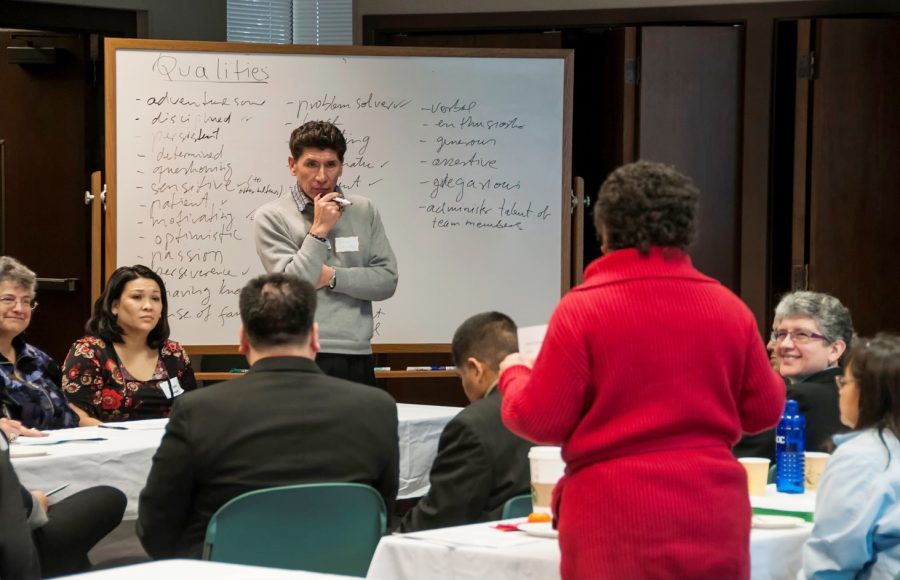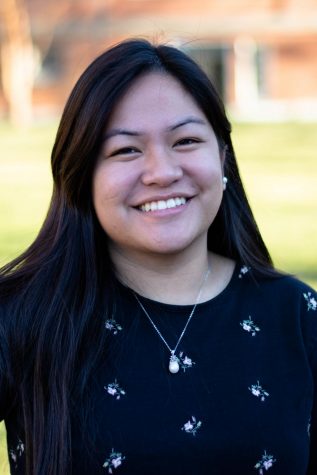Professor awarded for contributions to community
Director reaches out to underserved groups, guides Spanish-speakers
Jose Garcia-Pabon listens to an attendee during a leadership training workshop for Latino parents at the 2014 Latino Leadership Initiative.
October 30, 2018
A member of the Community and Economic Development team at WSU Extension received an award from the Rural Sociological Society to commend his efforts in reaching out to and educating the community.
Jose Garcia-Pabon, CED acting assistant director, said he received the award on July 29. He said he was surprised at first and thought the award was a joke.
“I really didn’t believe that my work was so worthy of an actual award,” Garcia-Pabon said.
Marcia Ostrom, associate professor at the WSU Center for Sustaining Agriculture and Natural Resources in Wenatchee, said she nominated Garcia-Pabon for the 2018 Excellence in Extension and Public Outreach Award.
The purpose of the award is to honor an individual who has made a significant contribution with public outreach, Ostrom said. The partnership with Garcia-Pabon gathered 300 Spanish-speaking WSU Extension students to be involved with their sustainable farming education program.
“Without Mr. Garcia-Pabon, we would not do a good job serving a diverse audience and extension,” she said. “In the future, I believe that Latino immigrants will play a stronger role in our agriculture.”
Garcia-Pabon said he does outreach for “underserved” communities, which he defines as people who do not have access to information, resources or support that may be available to them.
“Those are folks who are usually communities of color [or] people who are in a socioeconomic status that could stem at a disadvantage,” he said.
Garcia-Pabon said some communities may not receive services due to many factors. He said he thinks it is a part of his responsibility as a member of the CED to help those communities.
In an effort to help and inform underserved communities, he said he offers trainings and workshops in Spanish. He said he thinks members feel more comfortable when presenters speak in their native tongue.
Garcia-Pabon said he also offers training for his colleagues and other professionals who are interested in working with the Latino/a population. He provides skills that make them more effective when they offer services to minorities or Latino/a communities.
He said some of the workshops include tips on starting a small business and dealing with issues related to mental health. Some of his workshops are paid and the money is then allocated to things such as his travel and training expenses.
“My job is to educate and provide support, help and assistance,” Garcia-Pabon said, “not to make money for my program or things like that.”
He said there will be a Latino/a Leadership Initiative program from December to May, which requires three community colleges in the Snohomish and Skagit counties to attend a one-day retreat once a month.
Garcia-Pabon said it is important to do outreach because the population of Latino/a communities is growing in the U.S.
“[Latino communities] are becoming a more important part of society here in Washington, and generally speaking, the country,” he said.
Garcia-Pabon said he thinks it is important for underserved communities to recognize the services available to them in order to be successful.












